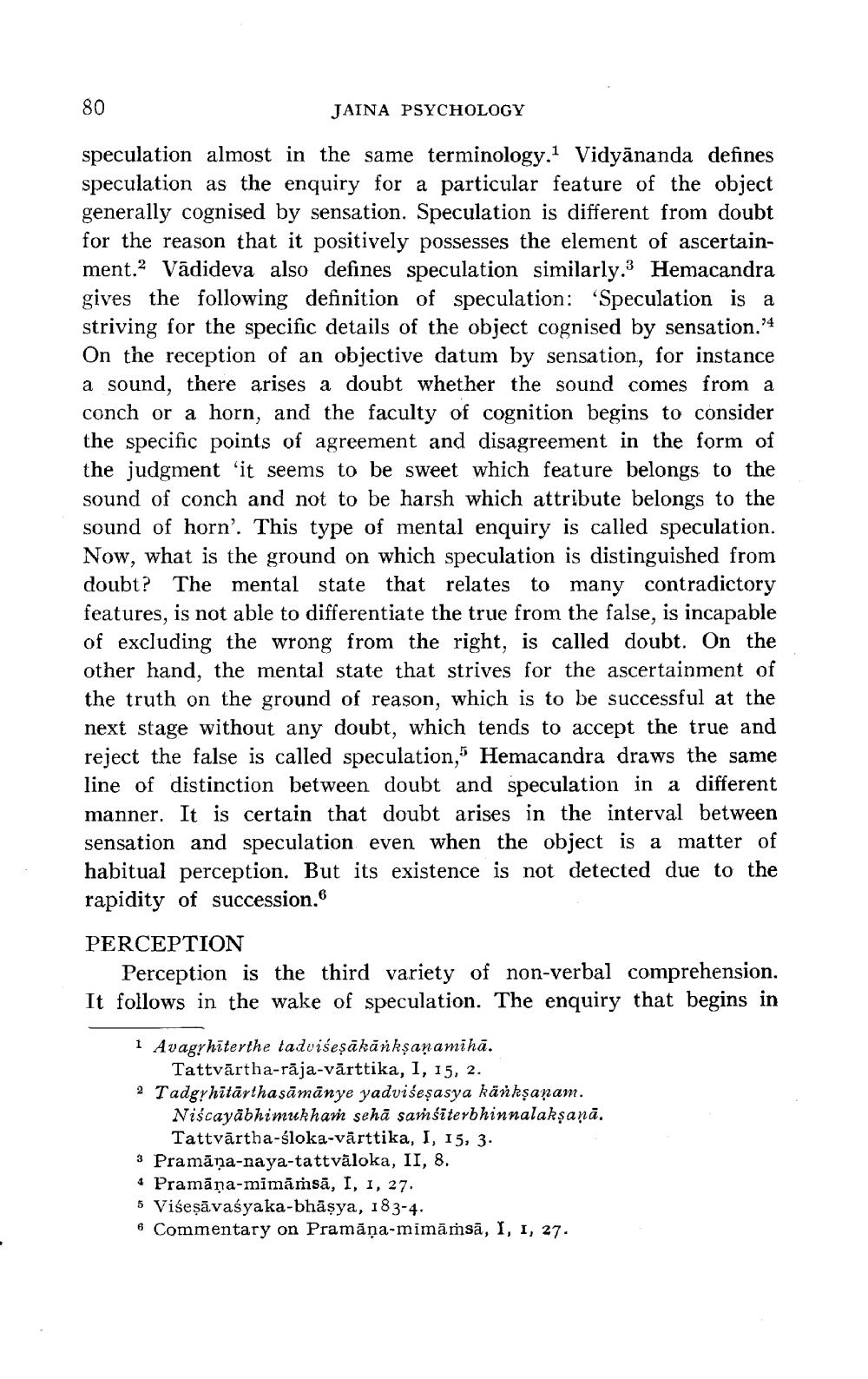________________
80
JAINA PSYCHOLOGY
speculation almost in the same terminology.1 Vidyānanda defines speculation as the enquiry for a particular feature of the object generally cognised by sensation. Speculation is different from doubt for the reason that it positively possesses the element of ascertainment.2 Vādideva also defines speculation similarly.3 Hemacandra gives the following definition of speculation: 'Speculation is a striving for the specific details of the object cognised by sensation.24 On the reception of an objective datum by sensation, for instance a sound, there arises a doubt whether the sound comes from a conch or a horn, and the faculty of cognition begins to consider the specific points of agreement and disagreement in the form of the judgment 'it seems to be sweet which feature belongs to the sound of conch and not to be harsh which attribute belongs to the sound of horn'. This type of mental enquiry is called speculation. Now, what is the ground on which speculation is distinguished from doubt? The mental state that relates to many contradictory features, is not able to differentiate the true from the false, is incapable of excluding the wrong from the right, is called doubt. On the other hand, the mental state that strives for the ascertainment of the truth on the ground of reason, which is to be successful at the next stage without any doubt, which tends to accept the true and reject the false is called speculation, Hemacandra draws the same line of distinction between doubt and speculation in a different manner. It is certain that doubt arises in the interval between sensation and speculation even when the object is a matter of habitual perception. But its existence is not detected due to the rapidity of succession. PERCEPTION
Perception is the third variety of non-verbal comprehension. It follows in the wake of speculation. The enquiry that begins in
1 Avagyhiterthe tadviseşākāňkşanamihā.
Tattvārtha-rāja-vārttika, 1, 15, 2. 2 Tadgrhītārthasāmānye yadviśeşasya känksanam.
Niscayäbhimukham sehā sansiterbhinnalakşanā.
Tattvārtha-sloka-vārttika, I, 15, 3. 3 Pramāņa-naya-tattväloka, II, 8. 4 Pramāņa-mimāṁsā, I, I, 27. 5 Višeşāvasyaka-bhāşya, 183-4. 6 Commentary on Pramāņa-mimāmsā, I, I, 27.




